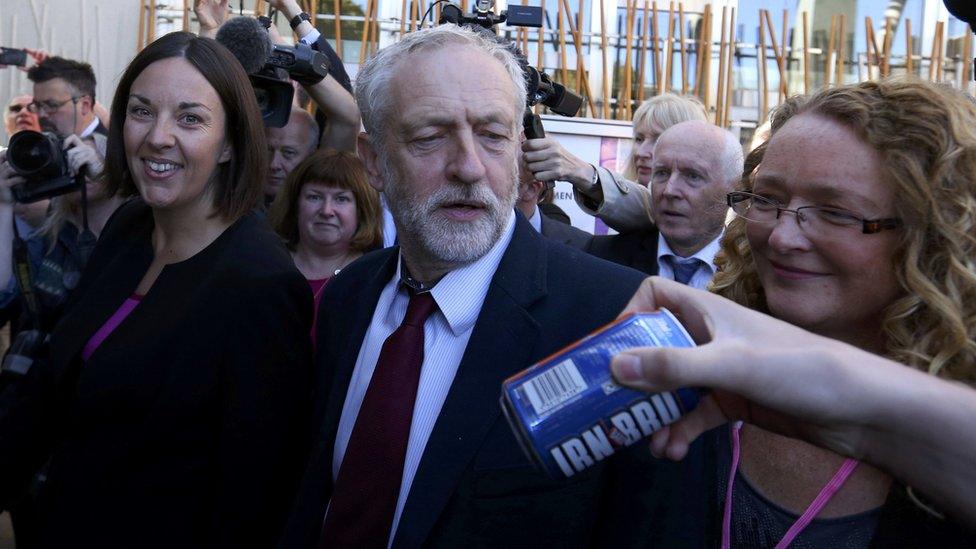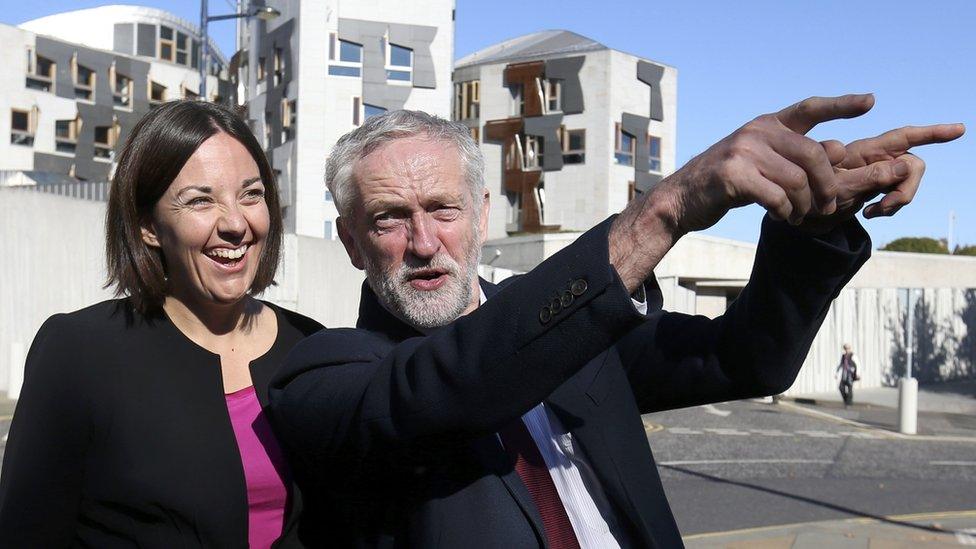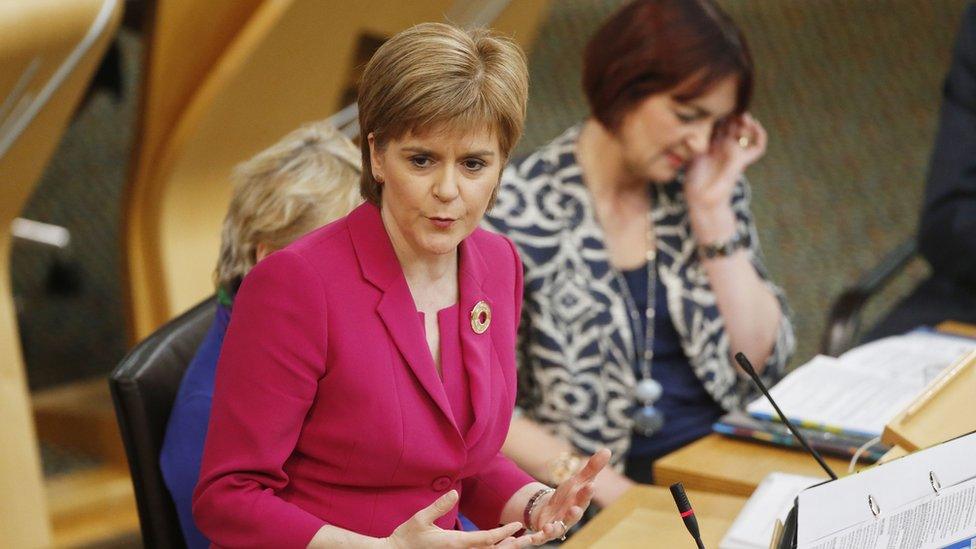Corbynmania Scottish-style
- Published

Jeremy Corbyn is well used to political crowds. During his 32 years as an MP, however, he was more used to forming such gatherings in vigorous collective protest against some perceived abuse of power.
Now, things are rather different. As earlier this week in Brighton, so it was today in Edinburgh. Arriving at Holyrood, Mr Corbyn found himself pursued by a mild-mannered mob comprising, in various proportions, the wicked media, intrigued citizens and puzzled tourists.
He looked charmed and amused, if ever so slightly puzzled by the scale of the attention. At one point, he was torn between waving to a group of passing children and gently chiding the wicked media for juvenile pursuit antics.
Today's talks may have taken place in Scotland - where the SNP are Labour's big opponents, not the Conservatives. But the issue pursuing Mr Corbyn yet again was the one that has dogged him all week: Trident.
There are three obvious reasons for this. One, Trident is based in Scotland, at Faslane on the Clyde. It is a totemic issue in Scottish politics.
Two, Labour remains divided on the question of whether to upgrade or scrap the deterrent. Mr Corbyn favours abandoning Trident. Key members of his shadow team favour replacement and retention.
Three, those opponents. The SNP say that Labour's position on Trident is a "complete mess", seeking to extrapolate from that particular issue into a general commentary on their rivals' alleged unfitness to govern.

So I opted to pursue the topic of Trident in interviewing Mr Corbyn, alongside such questions as the economy and the constitutional future of Scotland.
On the economy, he argued that an overtly anti-austerity pitch by his party would trump the SNP's offer of independence. He said that Scotland should now "move on" from the debate which had featured in the referendum.
On Trident, Mr Corbyn said his views were clear. He was agin it. He referred further to the prospect of a debate on the issue at the forthcoming Scottish Labour conference - which has been brought forward to the autumn from its customary spring because of the Holyrood elections in May.
Yes, but would Labour's overall position on Trident be clear by those elections in May, before the people of Scotland went to the polls? Mr Corbyn hoped that would be the case - but he could give no guarantees.
It was an honest, straightforward answer in keeping with his general stance. But not perhaps one which assists Scottish Labour in silencing the persistent questions from the SNP.
Tough questions
Earlier Nicola Sturgeon had faced some persistent questions herself - on the subject of Michelle Thomson, the MP who has stepped down from the SNP pending a police investigation into business affairs.
The police inquiries were instigated after an Edinburgh solicitor was struck off in relation to property deals. Ms Thomson was involved in the deals some four to five years ago. She has offered to talk to the police although it is emphasised that she is not the initial subject of their investigation.

Ms Sturgeon was pursued on this by both Labour's Kezia Dugdale and Ruth Davidson of the Conservatives. The first minister said that everyone - even a politician - was entitled to the presumption of innocence.
In essence, both opposition leaders challenged Ms Sturgeon to move beyond the question of legality to the issue of morality. Again, Ms Sturgeon said it was important to allow thorough inquiries to proceed.
However, she noted - in general - that the allegations would represent "completely unacceptable" behaviour if they were proven to be correct.
To stress, Ms Thomson is adamant that she has done nothing wrong, that she will be cleared and that she will be able to return to front line politics.